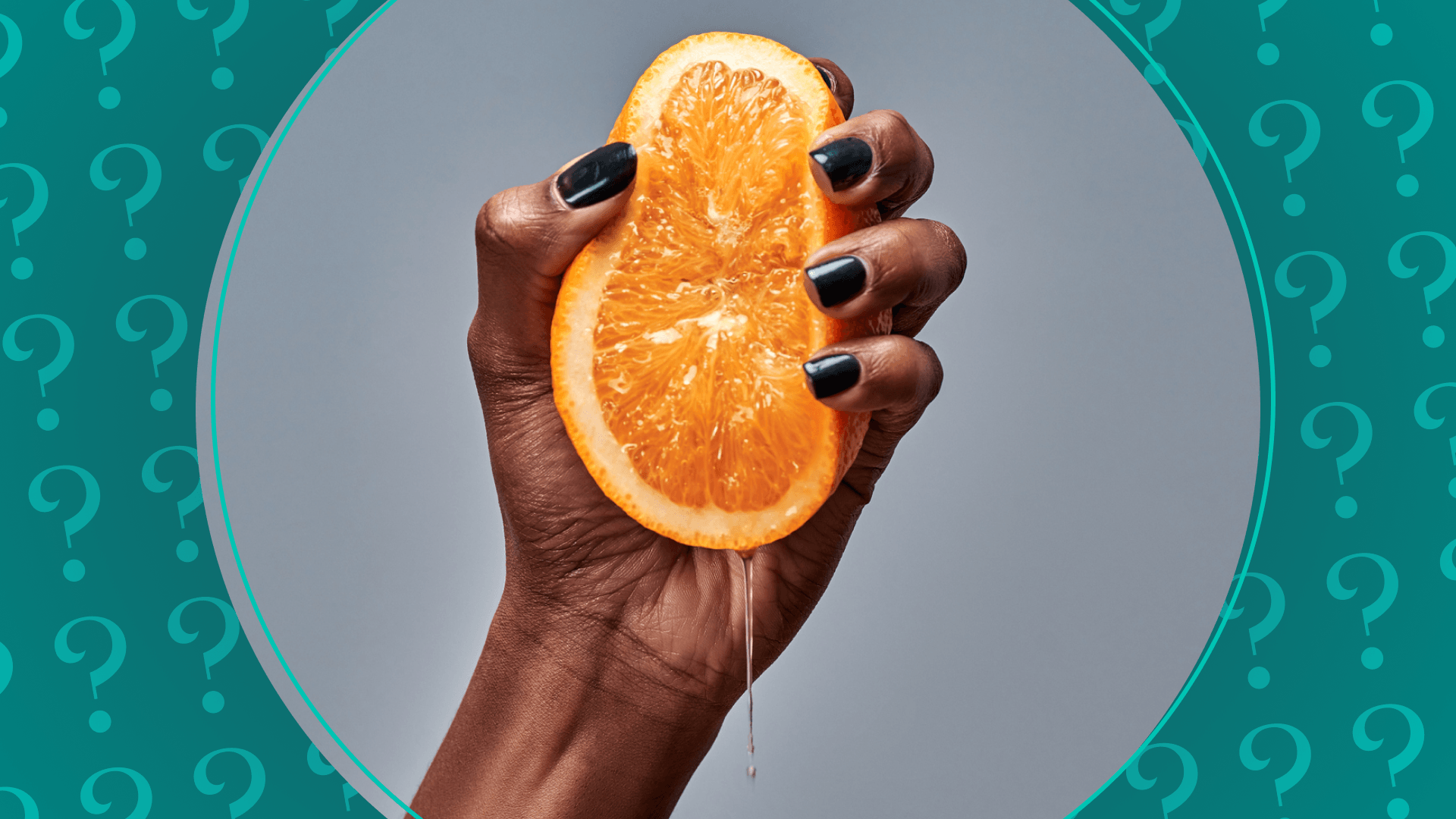Let’s be clear on something: Vaginal dryness can happen to women of any age and for various reasons. And while it can be a symptom of other issues, vaginal dryness is not always an indication that something else is going on, or that your sex drive is lower than it “should” be. (FWIW, ebbs and flows in your libido are perfectly natural, too.)
Sometimes, vaginal dryness is just a matter of your body taking longer to catch up to your mind. Meaning: You’re turned on mentally, but your body isn’t fully there yet. That’s where lube comes in. Not only can it help prevent tears in the vaginal wall or pain during sex, it can also boost pleasure. Other times vaginal dryness is caused by a physiological change. The culprit is often a loss of estrogen. It’s the hormone that, among other things, helps your vagina lubricate naturally. Estrogen levels can take a dip while breastfeeding, before your period starts, and during perimenopause and menopause — which can mean less natural lubrication. Certain medications and treatments can also contribute to vaginal dryness, which can also come with symptoms such as burning, itching, soreness, frequent UTIs, or bleeding after sex. Needless to say it can put a damper on your sex life (and is just generally uncomfortable).
As for solutions, there are some treatments for vaginal dryness, such as vaginal suppositories and estrogen creams, which may help (depending on what your doc says is right for you). Some natural remedies for vaginal dryness may also be helpful whether you’re nearing menopause or not. Here, Jaiya Ma, a somatic sexologist and star of Netflix’s “Sex, Love & Goop” breaks down some of your options.
Featured Expert

Jaiya Ma - Jaiya Ma is a somatic sexologist, founder of The Erotic Blueprint Breakthrough quiz, author, and star of Netflix’s "Sex, Love & Goop" with Gwyneth Paltrow.
theSkimm: How do I get rid of vaginal dryness?
Jaiya: “There are many factors other than age that affect lubrication. Some [vaginas] are naturally more lubricated than others. Some women naturally [don’t] lubricate as much, no matter what age they are. We have conflated arousal with wetness…but you can feel turned on and aroused and not be wet. But [dryness] can also be indicative of a bigger challenge going on. Any pain is something to pay attention to and to get to the bottom of.
[Ask yourself], is [the dryness] related to your emotions — you didn’t want to have sex, but you overrode your body? Is it something biochemical — [are] you are going through menopause?
[To help mitigate it}, stay hydrated. Eat foods that help you feel hydrated, [such as] cucumber, melon, [and] pineapple. [Avoid] activities that dehydrate you [and] clothing that irritates your vaginal tissue.
Increase arousal to improve vaginal lubrication. If foreplay is arousing, then [more foreplay] would improve wetness. Maybe you need more warm up before [penetration]. Maybe your [partner] needs to learn to work from the outside to the inside. Meaning, work with the external anatomy before going more internal to penetration. Learn to listen to your body. When [you feel too dry], pause, [try] something different. Go back to kissing or activities that warm you up [for] sex. [And] 100% use lube. You can [also] talk to your doctor about medications and supplements.
People believe that something must be wrong with them if they aren’t wet. Anytime sex is involved, we may have hang-ups or shame, and that isn’t serving us. Sometimes, we just need some lube.”
Ask an Expert is for informational purposes only, does not constitute medical advice, and is not a substitute for professional medical advice, diagnosis, or treatment. Always seek the advice of your physician, mental-health professional, or other qualified health provider with any questions you may have regarding a medical condition. By submitting a question, you are agreeing to let theSkimm use it—in part or in full—and we may edit its answer for length and/or clarity.
Live Smarter
Sign up for the Daily Skimm email newsletter. Delivered to your inbox every morning and prepares you for your day in minutes.
